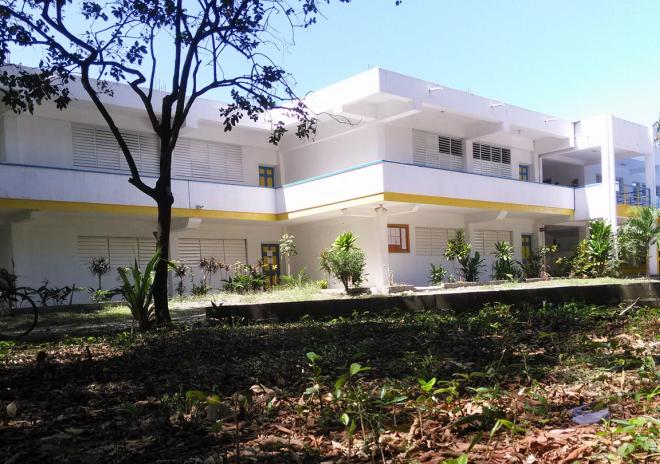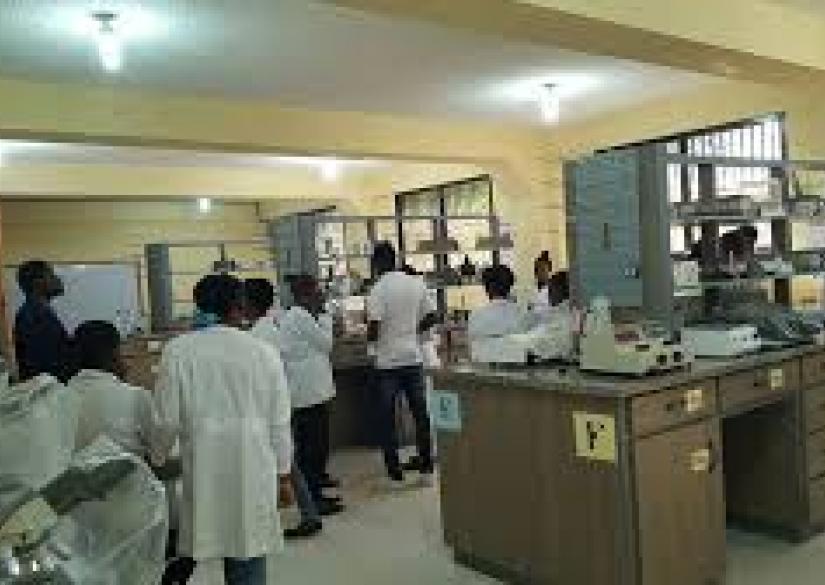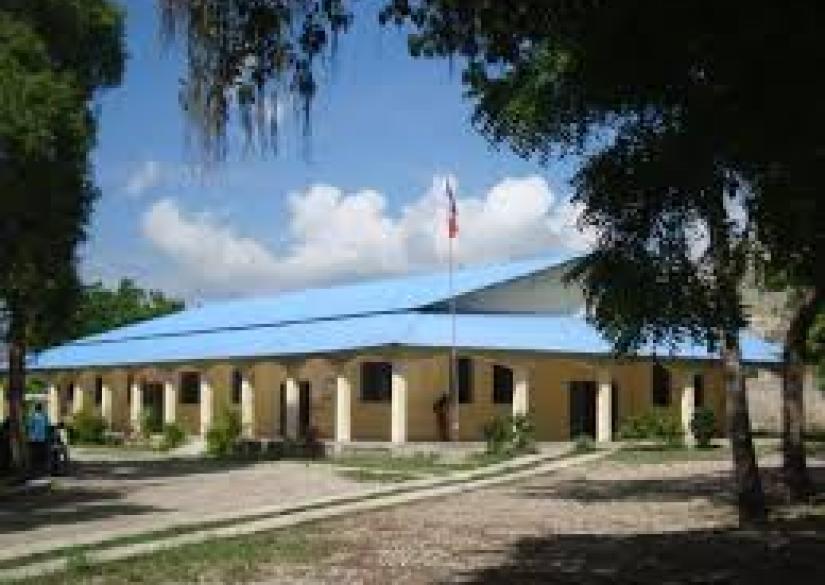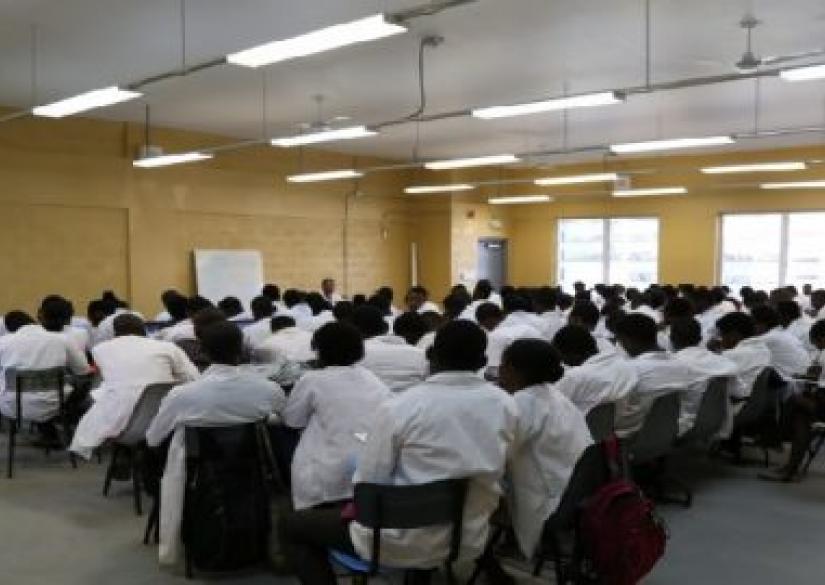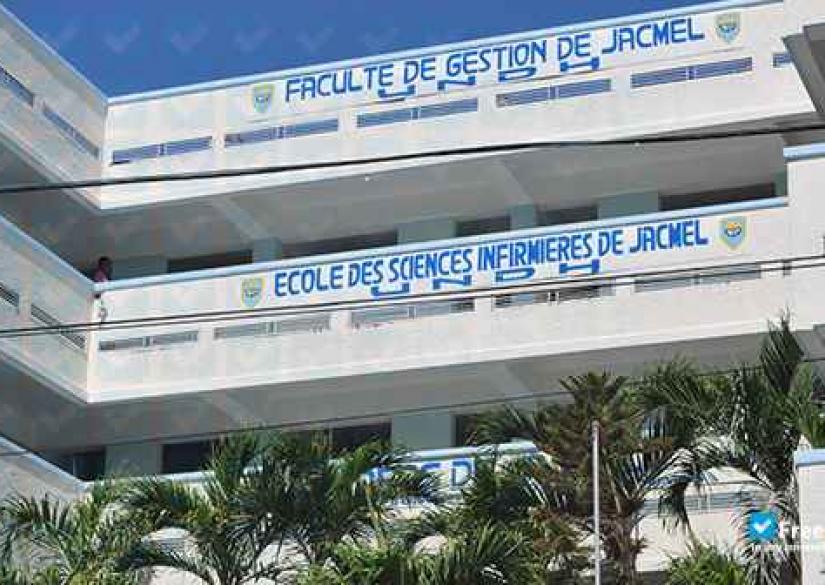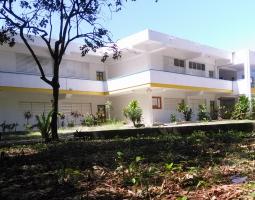Catholic University of Notre Dame in Haiti
Programs and prices, tuition fees in Catholic University of Notre Dame in Haiti
Baccalaureate (diploma + license for professional activity)
- Beginning of the school year: October
- Language of instruction: French
- Age: 17+
- Registration fee: $ 20
- Duration of study: 6-10 semesters.
Popular programs:
• Regional cultures and languages
• Oriental cultures and languages
• Epistemology, history of science and technology
• Bible and liturgy
• Nursing
• Pharmacology
• Rehabilitation of patients
• Administration
• Accounting
• Agronomy.
MBA (Master of Business Administration)
- Beginning of the school year: September, January, April
- Language of instruction: English, French
- Age: 21+
- Registration fee: $ 100
- Duration of study: 15 months.
Description of Catholic University of Notre Dame in Haiti
• Base: 1995
• Abbreviation: UNDH
• Status: private
• Location: Port-au-Prince, Haiti
• Age: from 17 years old
• Accommodation: residence
• Language of instruction: French, English.
The Catholic University of Notre Dame in Haiti was founded by the Haitian bishop of the Roman Catholic Church in 1995, in 1996 he accepted the first students. The Catholic Church in Haiti makes a great contribution to the development of education in the country, opens and supports schools, helps the university.
The mission of the Catholic University is to serve the truth. UNDH declares its tolerance and invites students of other religious views to study if they agree to respect the rules and traditions of the Catholic University.
Universite Notre Dame d'Haiti, being a private university, does not pursue commercial goals. But the Haitian Catholic community cannot fully support the university and campuses, so tuition at UNDH is paid. The cost of training is adjusted individually, taking into account the solvency of the family and other factors.
The training is conducted in French, but there are also English-language programs. Most UNDH study programs - undergraduate, master and doctoral degrees at this university are not awarded. The peculiarity of training at this university: a successful graduate receives not only a bachelor's degree, but also a license for professional activities, including medical.
Of the postgraduate programs, Universite Notre Dame d'Haiti offers an MBA (Master of Business Administration).
• 7 faculties: business and management, agronomy, computer science and computer engineering, medical faculty of nursing, rehabilitation sciences, religious studies
• 7 campuses in the capital and the surrounding area.
The main areas of study:
• Theology, history of religion
• Management, business management
• Pharmacology
• Health protection
• Nursing
• Agronomy
• Information Technology
• Public Relations
• International relationships.
Accommodation, meals, prices
University students are accommodated in campus residences or rent apartments. The cost of housing is from $ 590 to $ 1,200, for food and transport you will need from $ 900 to $ 1,500 per month.
Advantages
- The Catholic University of Notre Dame in Haiti is among the five best universities in the republic in terms of the quality of study programs and the achievements of graduates
- A graduate with a diploma receives a license for the right to professional activities
- Highly qualified teaching staff
- A large number of medical sector programs, practice from 1 year of study
- Upbringing the skills of a modern professional: leadership skills, teamwork, knowledge of psychology, media literacy
- Joint student exchange programs with universities in Haiti, Catholic universities in other countries
- Geographical location: Port-au-Prince is a port on the coast of the Gonaïves Bay in the Caribbean, the capital of the republic, located in the western part of the island of Haiti.
Facilities and equipment at Catholic University of Notre Dame in Haiti
Each faculty has its own campus, located in the Catholic mission. Visits to relatives and friends are possible only with the permission of the mission.
At the disposal of all students are libraries, gyms, studios for creative work. It is very popular at the university to participate in volunteer projects.
Entry requirements, how to apply, what is required to enrol
1. Original birth certificate or extract from the archive and a copy
2. Notarized translation of all educational documents into French
3. Document on secondary education, the content corresponding to the 1st and 2nd part of Haiti's secondary education (original and copies)
4. Passing entrance tests (3 parts: specialty, language of instruction, mathematics)
5. Original passport and copy
6. 2 last photos in the passport
7. Letter of recommendation from a religious leader (pastor, priest of his parish)
8. Correctly executed registration form
9. Confirmation of payment of non-refundable fees
10. The registration form of the campus.
Requirements for applicants for MBA programs
1. Completed and signed registration form
2. Detailed biography
3. Essays
4. 3 signed letters of recommendation
5. Copies of the diploma of higher education
6. Copy of passport
7. Supplement to the diploma with marks certified by a higher educational institution
8. Copy of birth certificate
9. Confirmation of payment of non-refundable fees
10. at a rate of $ 100.
Scholarships Catholic University of Notre Dame in Haiti
The administration of the Catholic University of Notre Dame in Haiti provides 100 scholarships every 5 years of study.
Institution on the map
Residence permits, citizenship and other services
- Guardianship services during the studies
- Student supervision
Review about Catholic University of Notre Dame in Haiti
Recommendations on when to apply
| Language courses, schools and children's language camps | Primary and secondary education - private schools | Preparation programmes for entering universities - higher education | Higher education (after completing accredited programs A-level, IB, High School) - Bachelor, Master, MBA |
| - we recommend to apply 6-9 months before the start of the course (some camps and schools offer discounts for early booking or for lengthy study programs) - there are some very popular and high demand children's camps, where the applications need to be submitted 1 year in advance (in particular Switzerland , Great Britain , USA , Canada , Austria) | - we recommend to apply one year before the start of the training program, - some schools have a specific time frame (September-November - please specify an individual school) - some schools require tests in several stages (UKISET, internal tests of the school: English, mathematics, logics, subjects, interview, some require a personal visit) | - we recommend to apply one year before the start of the program, - for Foundation and Pathway programs, IELTS and TOEFL certificates are usually required, respectively | - recommended submission one year before the start of the program, - the deadline normally closes in January, for TOP HEIs and, as a rule, in March in other universities - for a bachelor, a Foundation or Pathway preparatory program a completed A-level, IB, High School + IELTS / TOEFL are required - for Masters you need a graduated higher education, in some cases you need a pre-Masters program - MBA requires completed higher education, work experience preferably at least 2-3 years, etc. |


